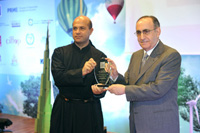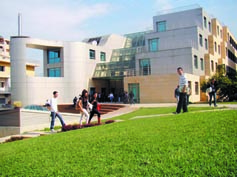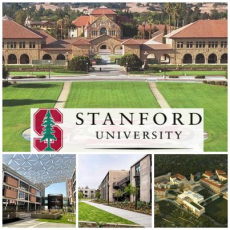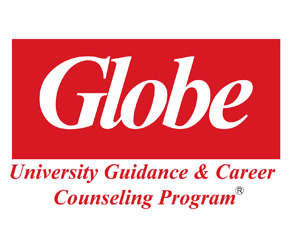Inauguration of the 2nd PRME MENA Regional Forum at USEK
The Faculty of Business and Commercial Sciences at The Holy Spirit University of Kaslik inaugurated the 2nd PRME MENA Regional Forum, entitled “Doing Business Responsibly: When Corporations Become Citizens”. The event took place in cooperation with The General Secretariat of The Initiative of Principles of Responsible Management Education (PRME), affiliated to The United Nations; The American University in Cairo (AUC); The Arab Society of Faculties of Business, Economics and Political Sciences (BEPS), The George Washington University (GWU), and Université Panthéon-Assas (Paris II), at Jean Paul II Amphitheater at USEK Main Campus.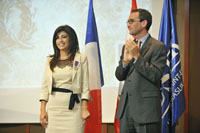
A representative of the Chief of the Lebanese Armed Forces, along with a group of businessmen, social, educational and environmental figures, as well as Lebanese, Arab and Foreign experts from more than 60 countries, all participated in the conference.
The International Relations Coordinator at The Faculty of Business and Commercial Sciences at USEK, Miss Lea Yahchouchi, inaugurated the conference, saying that the PRME mission is to promote and disseminate the principles for responsible management education as well as leadership.
Afterwards, the Head of the Principles for Responsible Management Education (PRME) Secretariat of The United Nations Global Compact Office, Jonas Heartle, confirmed that management education plays a vital role in achieving sustainable development. Therefore, he stressed the importance of partnership in order to cope with the most important global challenges. Mr. Heartle stated that the United Nations Global Compact Charter is always ready to support and ensure communication between the Faculties of Business and responsible corporations, adding: “You have the power to create and disseminate ideas and innovations that can make the change the world needs today.”
The Dean of The Faculty of Business and Commercial Sciences at the Holy Spirit University of Kaslik, Dr. Nehme Azouri, welcomed the crowd and stated that “…corporation management cannot be learned, but must be earned” adding that “working with others requires responsibility and credibility in order to reach the desired organizational goals.” Dr. Azouri continued: “…honesty is of utmost importance and can be achieved through rejecting the abandonment of ethics. Teaching the principles of responsible management requires knowledge, passion and integrity, due to the fact that they are related to preparing others to work, through developing the spirit of trust, commitment and credibility.” He concluded by quoting General George Patton: “Wars are not won by weapons but by men; men who are leaders and who guide by spirit.”
The Dean of the Faculty of Business and Commercial Sciences at AUC, Dr. Sherif Kamel, stated that “… in light of the great changes witnessed in the region, responsible management has become essential.” He added that the Faculties of Business are the main and only platforms generating responsible professionals and businessmen. Dr. Kamel considered that responsible management is the motive behind sustainable actions and that this conference is the true platform for constructive dialogue among Faculties, corporations and governments, adding that the AUC is strongly committed to the PRME.
The Secretary General of the Association of Arab Universities, Dr. Sultan Abu Orabi pointed out that the history of Higher Education in the Arab world is recent, only going back to 1950, and that the number of universities has increased drastically; moving from 11 in 1950 to 550 nowadays. Through the establishment of the Association of Faculties, The Association of Arab Universities has aimed to push forward the higher education sector to cope with new technologies and latest developments and meet the requirements of the era we live in. Dr. Abu Orabi added that globalization has imposed new challenges that have to be met. Thus there is a need to adopt the following: drafting a new educational system that can be developed and modernized, linking educational planning to social and economic development, paving the way for the private sector to invest in education, and adopting advanced standards in Arab universities to scale up educational levels.
After receiving an Honorary Insignia from Dr. Abu Orabi, The President of the Holy Spirit University of Kaslik, Reverend Father Hady Mahfouz indicated that “The Principles for Responsible Management Education fit well with our mission and respond to our main concern to develop every human being without any discrimination.” He added: “When I think of social responsibility, many ideas and principles come to my mind; among which is the USEK “Go Green Project”, aiming to provide stakeholders with the needed environment to be responsible within their smaller community which will enable them to become environmentally responsible within their bigger community. Secondly, our institutional functionality, that was the hard work of many responsible people at USEK, whereby every individual, mainly the student, relies not only on others, but is taught how to be proactive and rely on himself/herself and on available efficiencies. Here I cannot but stress an important principle that I have always called for and that represents the essence of our work at USEK, the “I” and the “we” that responsibly complement each other, in order to come up with the needed results. In fact, in the “we”, representing the University and Society in general, there is every “I", whereby every one carries his/her own history, characterized by his/her own attitudes, ambitions, worries, family or social problems, and personal experiences. These “I”s do not come to the University deprived of everything that I mentioned above, they bring their whole history into the University, and this same individual history will become, in one way or another, one of the University components that should be taken into account in every step the University takes. In fact, USEK cares about the person, every person and the whole person that constitutes its path and its objective and strives to raise this person up to the level of his or her utmost human dignity.”
The Representative of the President of the Council of Ministers, H.E. Minister Nicolas Nahas stated that administrative principles of international commercial corporations have shifted from simply generating maximum profits, because of awareness of the environment. These principles have also shifted towards increasing respect towards social partners along with improving the social performances of themselves and others. He added that economic, legal, moral and individual factors are the motives pushing corporations to adopt corporate social responsibility. The latter influence six main fields: human resources management, safety and health, profitability, accountability, the environment, and Society. As for Lebanon, M.E. Mr. Nahas stated that the participation in corporate social responsibility is limited to big companies only, the participation of the Lebanese government is modest compared to the great role it should play. He concluded by saying that the government have, however, adopted some policies supporting social responsibility and rewarding initiatives and innovations in this field.
Finally, H.E. Minister Nicolas Nahas received the University medal. Then Rev. Fr. Mahfouz received a certificate of appreciation from the Head of The World Law World Federation, Mr. Gale Collin and from the Head of PRME MENA and member of The World Law Federation, Mr. Sameh Dahrouj. Mrs. Nora Joumblatt, President of the Beiteddine Festival and Member of the Executive Committee of Al Chouf Cedars Reserve; Ibrahim Dabdoub, Group CEO of the National Bank of Kuwait; Sheikh Pierre El Daher, Chairman and CEO of the Lebanese Broadcasting Corporation International; and Professor Albert Corhay, Prime Vice-Rector, Université de Liège, all received Honorary Insignias for their active contribution in Corporate Social Responsibility.
Three consecutive sessions followed tackling the subjects: The Influence of Private and Public Policy on Corporate Social Responsibility, Managing a Sensitive Environment: Perspectives and Challenges, and Environmental Sustainability in the Education Sector. The Conference continued the following day, Thursday November 8, 2012.






